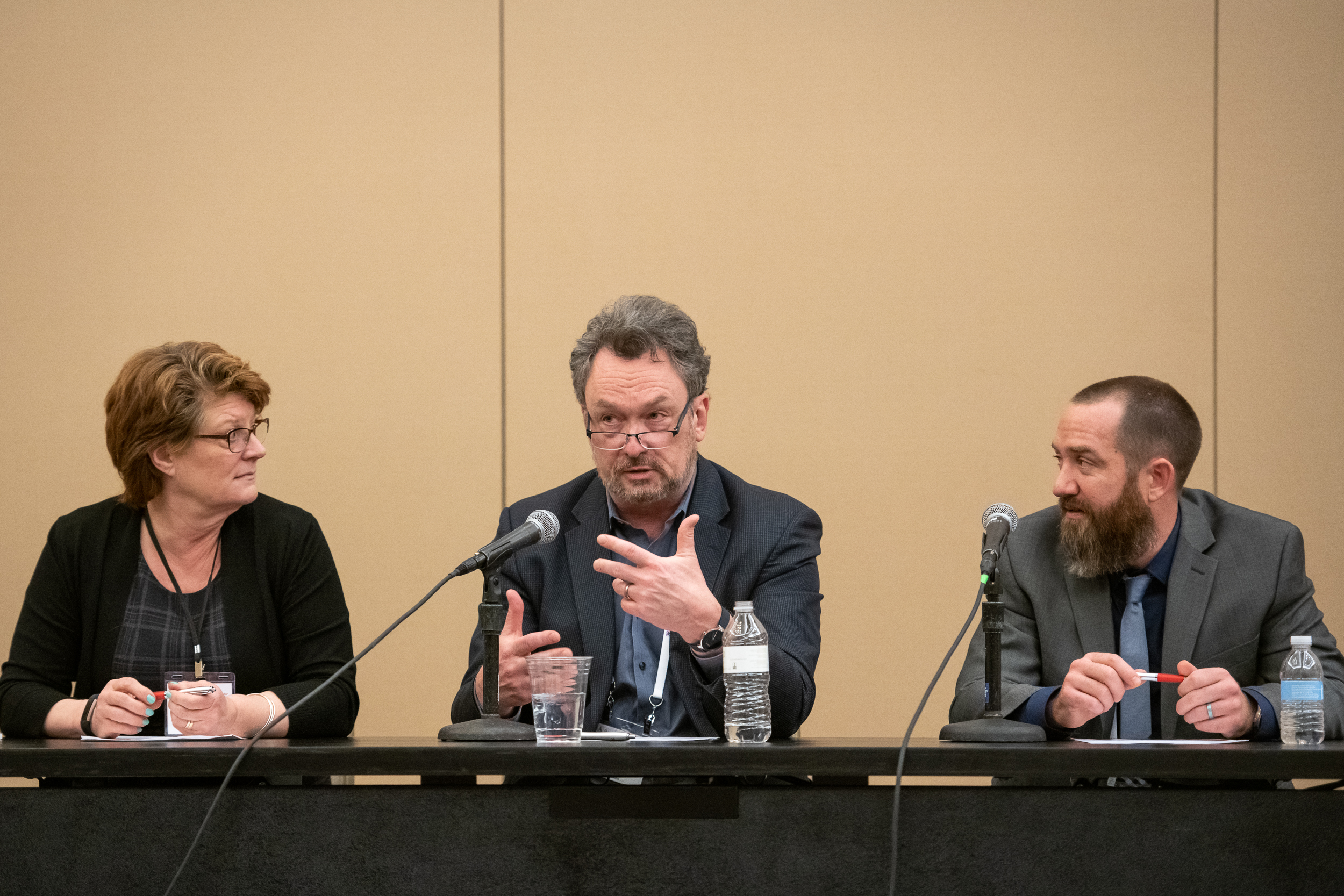
2019 Delphi Award Winners Discuss Supporting Non-Tenure Track Faculty at AAC&U Conference
The Association of American Colleges and Universities Annual Meeting took place recently in Washington, D.C. and included a session with winners of the 2019 Delphi Award from Santa Monica College and Penn State. The event was moderated by Adrianna Kezar, Director of the Pullias Center, and Ashley Finley, Senior Advisor to the President and Vice President of Strategic Planning and Partnerships at AAC&U.
The conference started out earlier in the week with a plenary session in which Scott Jaschik, editor and co-founder of Inside Higher Ed, noted that one of the two worst epidemics on college campuses are adjuncts sleeping in cars (the other being racism). It was therefore no surprise that support for non-tenure track faculty was on the minds of attendees for the Delphi Award panel.
 The session opened with a discussion of the ways that the teams at Santa Monica College and Penn State started their award-winning initiatives. Joelle Adams, a full-time faculty member, noted that Santa Monica college initially “didn’t have much support in place” to address the plight of non-tenure track faculty. The efforts of Adams and her colleague to collect data supporting why changes were needed proved pivotal in overcoming the institutional inertia. Adams noted that two resources from the Delphi Project, The Imperative for Change: Fostering Understanding of the Necessity of Changing Non-Tenure-Track Faculty Policies and Practices and Dispelling the Myths: Locating the Resources Needed to Support Non-Tenure-Track Faculty, are helpful in getting the process of change started.
The session opened with a discussion of the ways that the teams at Santa Monica College and Penn State started their award-winning initiatives. Joelle Adams, a full-time faculty member, noted that Santa Monica college initially “didn’t have much support in place” to address the plight of non-tenure track faculty. The efforts of Adams and her colleague to collect data supporting why changes were needed proved pivotal in overcoming the institutional inertia. Adams noted that two resources from the Delphi Project, The Imperative for Change: Fostering Understanding of the Necessity of Changing Non-Tenure-Track Faculty Policies and Practices and Dispelling the Myths: Locating the Resources Needed to Support Non-Tenure-Track Faculty, are helpful in getting the process of change started.
Josh Wede, a teaching professor from the Penn State team, reflected on how the roles of governance and faculty advocates were a key factor in getting their efforts off the ground. He came away from his experience realizing that even in the face of resistance and apathy, a few faculty leaders working together can break through the barriers to meaningful change. In terms of challenges, Wede also cited the lack of funding, as well as pushback from colleagues from the tenure track and administrators. The importance of having a powerful narrative was also noted as helpful for addressing financial and administrative roadblocks.
Michael Berube, Professor of Literature and Immediate Past Chair of the University Faculty Senate at Penn State, highlighted the value of knowing your campus politics and being aware of potential landmines, such as addressing titles for non-tenure-track faculty or determining the importance of terminal degrees. He stressed that issues such as these can lead to a lot of disagreement that sidetracks progress if tackled early into the change processes.
The session also saw a great deal of audience engagement. Attendees noted that their efforts to put in place new policies and programs were sometimes not engaged by adjunct faculty. Adams suggested that initiatives that do not include some dimension of addressing pay inequities will see significantly less engagement from adjuncts. She shared that “at Santa Monica College, involvement in professional development was really advanced by paying adjuncts.”
Some of the audience also noted the strong political and change skills that were displayed by the panelists. Kezar, as moderator for the panel, summarized that sentiment by acknowledging that “it is exciting how the award-winning teams were taking the pulse at their respective campuses in preparation for pushing for significant change.” A recent PR crisis involving a mandatory ‘wellness’ program at Penn State provided a window for change as leadership looked for positive initiatives, she pointed out, while on the flip side Santa Monica College was not entangled in any crisis but was eager to improve graduate rates and student retention.
After highlighting the moments of opportunity seized on by the Penn State and Santa Monica college teams to enact beneficial changes for non-tenure-track faculty, Kezar brought the session to a close by challenging the audience to consider identifying similar opportunities to make a difference on their campuses.
Learn more about The Delphi Project on our website plus read case studies on the award-winning initiatives undertaken by Penn State and Santa Monica College. Applications for the 2020 Delphi Award are accepted from February 18 through July 17, 2020.